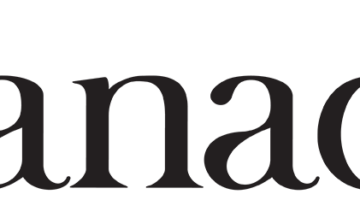The number of medical product alerts the ECRI Institute issues has soared in more than a decade. In 2001 it issued 200 medical product alerts to its members. This year, it will issue more than 2,500. In a bid to improve the lag time between a notification and a hospital identifying the product in its inventory, ECRI has launched a faster version of its 10 year old online notification system. It can automatically match up product names with hospitals’ inventories despite any discrepancies between the distributors’ or manufacturers’ order numbers and spelling.
ECRI’s Alerts Tracker Automatch automatically compares medical supply alerts with hospitals’ inventory and notifies the appropriate staff, such as the clinical engineer.
The goal is to shorten the time it takes for a problem to be discovered and for hospitals to track that product down. Currently it can take several hours and even days to track down the correct inventory information when there’s a problem identify issue emails to customers notifying them of a voluntary recalls by manufacturers in a shorter amount of time to improve patient safety.

With the Rise of AI, What IP Disputes in Healthcare Are Likely to Emerge?
Munck Wilson Mandala Partner Greg Howison shared his perspective on some of the legal ramifications around AI, IP, connected devices and the data they generate, in response to emailed questions.
In a phone interview with Eric Sacks, the director of healthcare product alerts for ECRI, he said “increasingly, hospitals are reporting that they learn about problems with medical products from ECRI before any other source.”
One of the things that makes inventory management tricky is that the hospital’s lead order number for the device might differ from the one used by the distributor or manufacturer. These subtle differences, which can also include misspellings, are referred to as aliases, said Sacks. Considering that hospitals have inventories of 25,000 to 35,000 items they routinely buy, it can make it tough to look up and identify the recalled product as rapidly as healthcare facilities would like, especially when time is of the essence.
Sacks explained how the alert tracking system works.
ECRI has a large database of product names in its system But when it can’t automatically match them, it has a team of analysts with medical product experience that helps create a connection between the product’s standard name and its aliases. They compare products on an ongoing basis. They can isolate purchases related to any one product, determine when and where it was bought and which facility purchased it. “This is not just a technology solution.”
One of the first companies in this space was National Recall Alert Center, which was started 40 years ago and provides closed loop tracking system. Others include Noblis, which runs medical product recall business Rasmas, and MD Buyline.
“More and more critical care technology is moving out to other parts of the hospital and into the home,” Sacks said. “Healthcare workers are contending with much more technology.”
Normal 0 false false false EN-US X-NONE X-NONE /* Style Definitions */ table.MsoNormalTable {mso-style-name:"Table Normal"; mso-tstyle-rowband-size:0; mso-tstyle-colband-size:0; mso-style-noshow:yes; mso-style-priority:99; mso-style-parent:""; mso-padding-alt:0in 5.4pt 0in 5.4pt; mso-para-margin-top:0in; mso-para-margin-right:0in; mso-para-margin-bottom:10.0pt; mso-para-margin-left:0in; line-height:115%; mso-pagination:widow-orphan; font-size:11.0pt; font-family:"Calibri","sans-serif"; mso-ascii-font-family:Calibri; mso-ascii-theme-font:minor-latin; mso-hansi-font-family:Calibri; mso-hansi-theme-font:minor-latin;}














